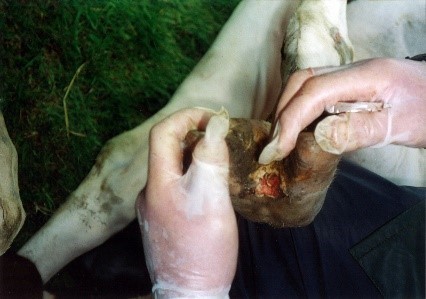Foot & Mouth Disease
The TasFarmers are extremely concerned about the recent detections of Foot and Mouth Disease (FMD) in Bali and Lumpy Skin Disease (LSD) in Indonesia
We want to assure you that we are working with government and our peak industry bodies to ensure that our industry is protected. We will endeavour to provide you with as much information as we can
What is Foot & Mouth Disease (FMD)?
Foot-and-mouth disease (FMD) is a highly contagious virus disease of animals. It is one of the most serious livestock diseases. It affects cloven-hoofed animals (those with divided hoofs), including cattle, buffalo, camels, sheep, goats, deer and pigs. It is found in many parts of the world, and has been reported in countries in Africa, the Middle East, Asia and South America and more recently in Bali, Indonesia.
There are seven serotypes of the virus: A, O, C, SAT1, SAT2, SAT3 and Asia1. These are further subdivided into more than 60 strains. The importance of these serotypes is that protection against one serotype (e.g. through vaccination) will not protect against infection with another serotype. Different serotypes dominate in different parts of the world.

How is it transmitted?
FMD is a viral disease that spreads rapidly between animals. Virus is excreted in breath, saliva, mucus, milk and faeces. The virus can be excreted by animals for up to four days before clinical signs appear. Animals can become infected through inhalation, ingestion and direct contact.
The disease spreads most commonly through the movement of infected animals. In sheep the symptoms can be absent or very mild, and undetected infected sheep can be an important source of infection. FMD virus can also be spread on wool, hair, grass or straw; by the wind; or by mud or manure sticking to footwear, clothing, livestock equipment or vehicle tyres.
Pigs are regarded as ‘amplifying hosts’ because they can excrete very large quantities of the virus in their exhaled breath. Cattle are very susceptible to, and able to be infected by breathing in small quantities of the virus. In some animals (‘carriers’), the virus can continue to be carried for long periods (months or years) after apparent recovery.
How infectious is it?
FMD spreads rapidly from one animal to another, especially in cool, damp climates and/or when animals are penned or housed closely together. The virus survives well at temperatures below 4 degrees Celsius, but is inactivated as temperatures rise. It is also rapidly inactivated at relative humidity less than 60 per cent.
Spread of infection between properties and areas is frequently due to movement of infected animals and/or contaminated vehicles, equipment, people and products.
Under suitable conditions, and dependent upon the strain and concentration of virus, windborne spread could be involved in the transmission of FMD over several kilometres. FMD may remain infective in the environment for several weeks.
Symptoms & Signs
Although FMD impacts all ages it can be particularly lethal in young animals and can cause serious production losses. The clinical signs are fever followed by the appearance of vesicles (fluid-filled blisters) between the toes and on the heels, on mammary glands and especially on the lips, tongue and palate. These vesicles often combine to form large, swollen blisters that erupt to leave raw, painful ulcers that take up to 10 days to heal.
Foot lesions leave animals lame and unable to walk to feed or water. Tongue and mouth lesions are very painful and cause animals to drool and stop eating. Adults usually begin eating again after a few days, but young animals may weaken and die, or be left with foot deformities or damage to the mammary glands.
What can you do?
• Review your on-farm biosecurity plan
• Be aware of the signs of LSD and FMD
• Adhere to all livestock traceability requirements
• Monitor who is coming onto your farm – ensure that any visitors who have recently travelled overseas take the appropriate steps to minimise the risk of transmission through contaminated clothing or shoes.
• If livestock exhibit any unusual signs consistent with FMD, report urgently to a local veterinarian or the
Emergency Animal Disease Watch Hotline on 1800 675 888
